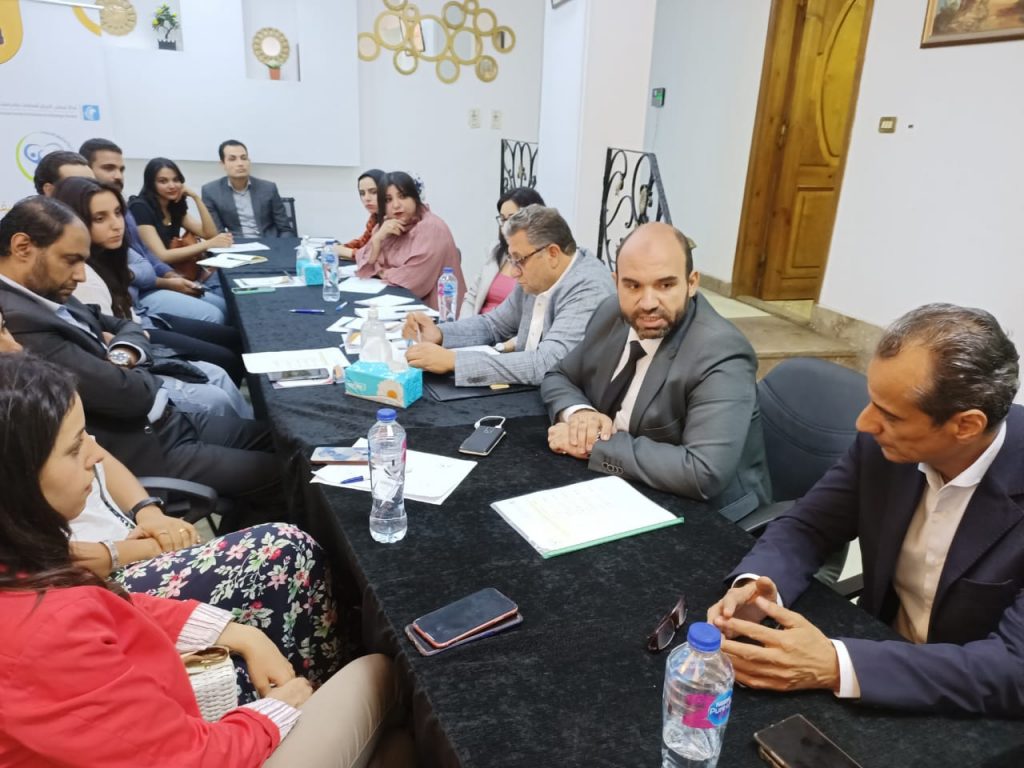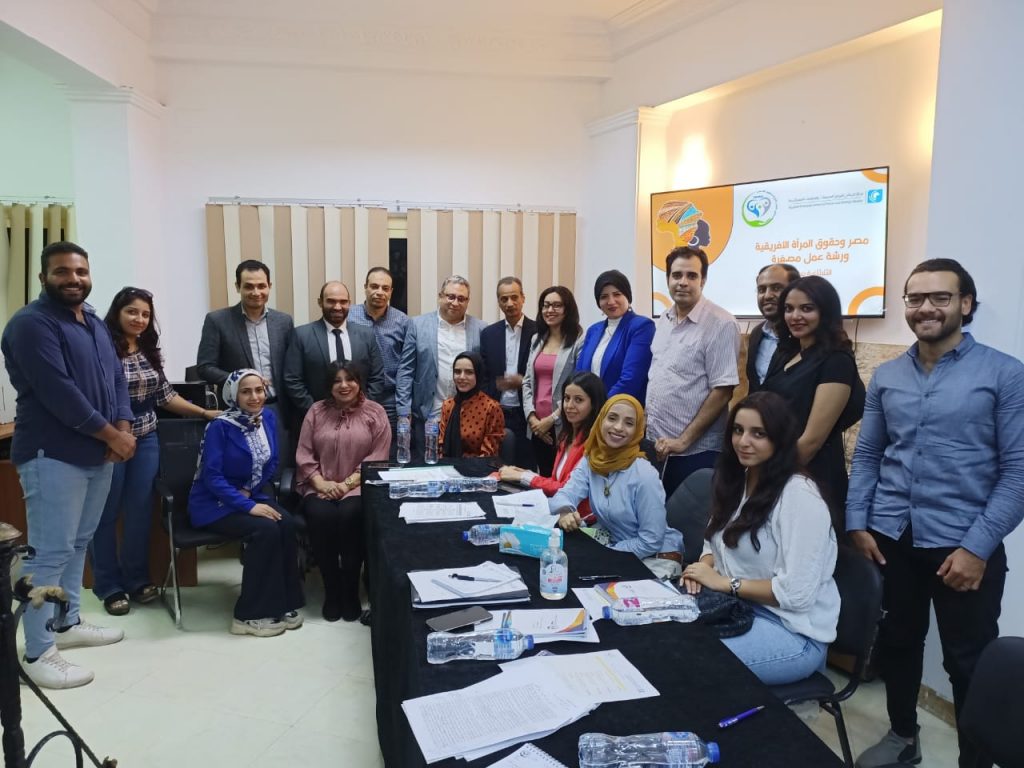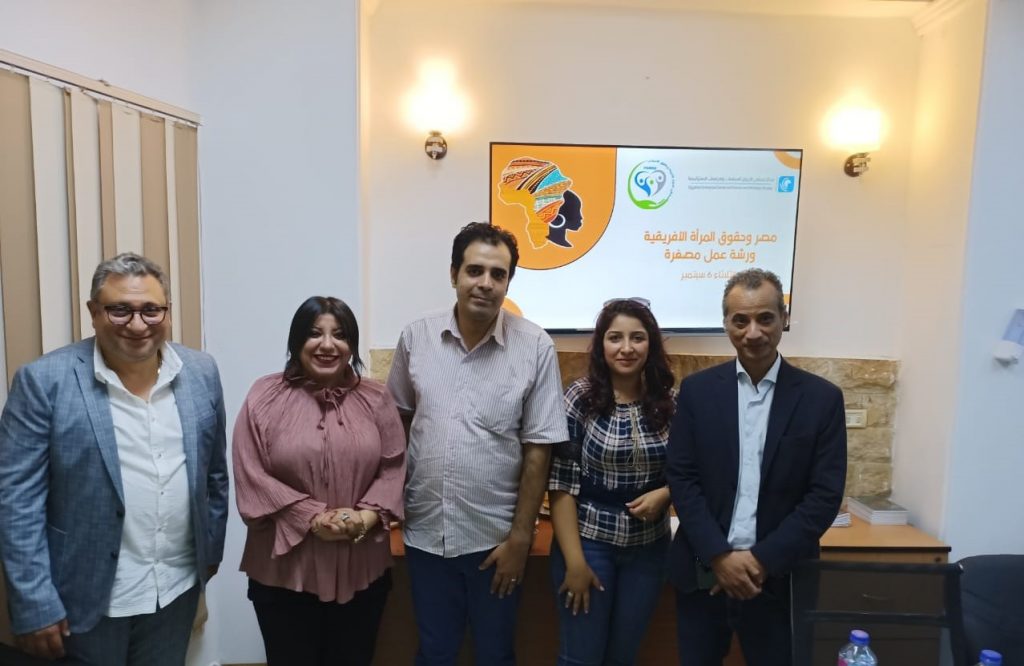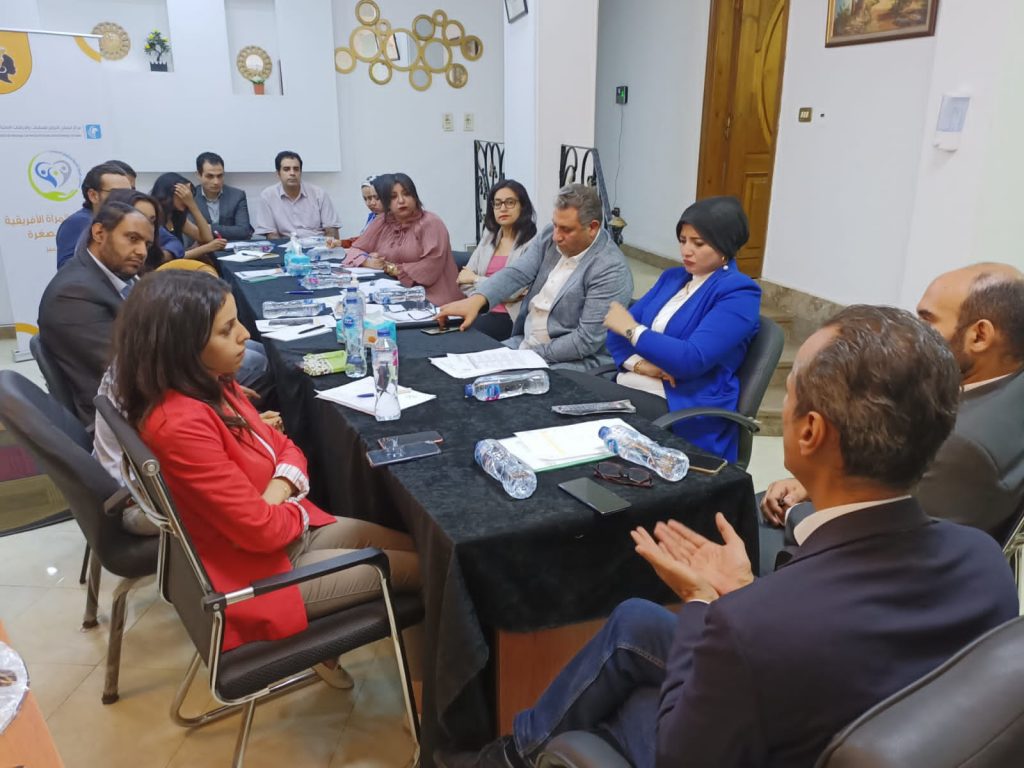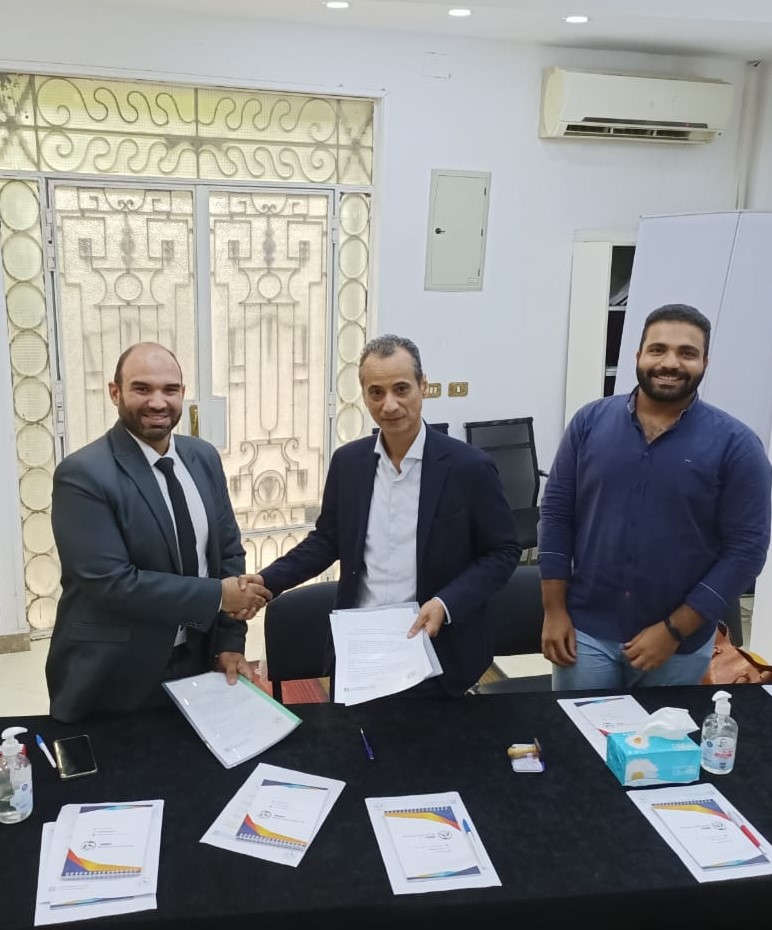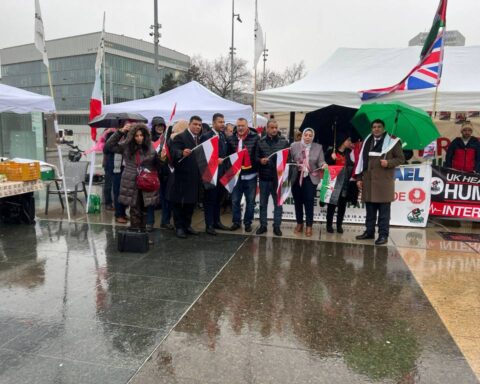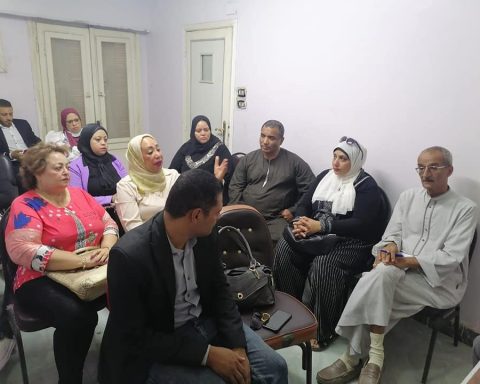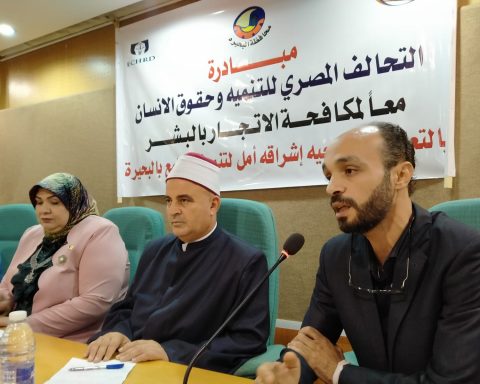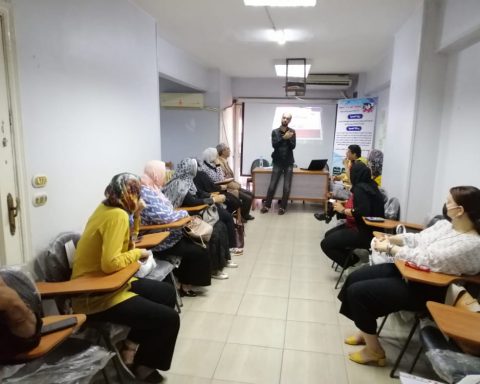The FDHRD, in cooperation with the Egyptian Enterprise Center, held on Tuesday, September 6, 2022, a focused workshop under the title “Egypt and African Women’s Rights”, as a part of the celebration of African Women’s Day. Its aim is to get acquainted with the latest developments and developments regarding African women’s rights, and what Egypt can offer in this context, in light of the many challenges African women suffer at all levels. A distinguished group of experts participated in the workshop.
The meeting began with the signing of the Joint Cooperation Protocol for one year between the FDHRD and the Egyptian Enterprise Center.
Mr Said Abdel Hafez, Head of FDHRD, expressed his happiness with this partnership, which is the first to be signed in 2022, and that the “Egypt and African Women’s Rights” workshop is only the first product of this protocol.
Also, Professor Mohamed Abdel Halim, Director of the Egyptian Enterprise Center for Policies and Studies, expressed his honour to cooperate with the FDHRD and stressed that the protocol is an achievement as cooperation with a larger organisation is crucial to increase the sphere of influence.
In regards to the role of women from a human rights perspective, Mr Said Abdel Hafez – a member of the National Council for Human Rights and head of the Forum for Development and Human Rights Dialogue – emphasized the speech of the audience. He pointed out that Egypt had signed the Maputo Agreement, but it had not ratified it. As the nature of any agreement, it has a reservation mechanism to allow differences. He stressed that Egypt respects all international agreements. He also expressed the need for public opinion to ratify the Maputo Protocol because of its positive effect in the event of ratification, thus, the decision-makers must be assisted. He also stressed that the Takaful and Karama Program is great fairness to Egyptian women and grants them their minimum and basic rights. He also stressed the need for women to receive support from Egyptian men. This is to allow her to gain her independence and be rehabilitated in reference to citizenship. Thus, gender equality is achieved.
In his speech on women’s rights in Africa, Mr Ayman Okeil (Chairman of the Maat Foundation for Peace, Development and Human Rights) indicated the need for Egypt to ratify the Maputo Agreement. However, the status of ratification of the Maputo protocol must not contradict the need for Egypt to play a leading role in the issue of African women’s rights, even if it had some reservations about the protocol.
He also stressed the need to work on implementing the laws related to women, as well as developing an executive plan for the National Human Rights Strategy in 2021. At the conclusion of his speech, he reiterated the need to work on empowering Egyptian women. There are many challenges that emphasize the need to raise the capabilities of women and rehabilitate them. He recommended the application of the principle of equality and non-discrimination and the necessity for the role of civil society to include a defensive aspect as well as an educational aspect to face the challenges facing Egyptian women.
In regard to the economic and social rights of women, Dr Reem Essam, a lecturer at the Faculty of Commerce at Cairo University and the academic coordinator of the joint study program with Georgia State University in the USA, gave a speech. She emphasized Egypt’s adoption of the sustainability axis in Egypt’s 2030 Vision with the aim of economic and social growth. She also pointed out that the forms of abuse that women face from an economic point of view, such as the salary gap, exist all over the world. In her speech, she focused on women’s economic empowerment and the factors that affect it. She also emphasized that there is inequality in employment opportunities due to regulatory laws, job-qualifying training, unpaid care work (which increased the disparity between men and women), social insurance, and limited access and control of resources. At the conclusion of her speech, Dr Reem recommended educating women through convoys with the National Council for Women in Egypt (NCW) in order to transform into a digital society and for the economic inclusion of women.
In regards to the cultural situation of women, Dr Ghada Helmy – President of the Be Human Foundation for Development and Care, and Human rights and Political researcher on women’s issues – pointed out that African women have been suffering from discrimination due to some cultural legacies and customs. She expressed that the African Agenda 2063 has put emphasis on women’s economic, social and cultural rights, At the conclusion of her speech, she expressed that there must be an overlap between economic, social and cultural rights. The most important of which is the economic rights under which the social aspect falls. She recommended an increase of support for women through strategies, laws, initiatives and economic empowerment, with the centrality of women heading administrative councils in order to spread the culture that women have what is needed to lead a number of institutions, thus, increasing the percentage of women’s presidency in administrative councils in Egypt.
While Professor Ramy Zohdy, an expert on African economic, political and investment affairs, stressed that there are some contradictions in the situation of women in Africa. African women preceded Egyptian women in several stages as Women are at the forefront of the African scene. He also stressed that women’s rights are more violated than men’s, as the violation of women’s rights in Africa is carried out by men. With regard to the issue of women’s empowerment, attention is paid to the number more than the how.
In conclusion, the attendees agreed that women in the African continent in general, and in Egypt in particular, face many challenges that must be addressed, whether economically, socially, politically or culturally. They stressed the importance of dealing with women as human beings only. Everyone also stressed the need to spread the health culture of women and that all civil society institutions work to raise awareness in order for women to obtain their rights.
